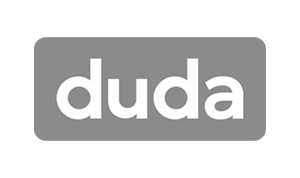Crown Street, Wollongong, 2500
Why Digital Marketers Are Important to the Success of Your Business
Looking for trusted digital marketers who can help you promote your business in Google? Love My Online Marketing specialises in providing quality web design services and Google marketing solutions.

Technology development has led to the emergence of new marketing platforms. When digital marketing was created, traditional marketing came down as a second alternative for modern businesses.
Digital marketing has become the preferred choice for businesses as it enables more efficient communication with their target audience while minimising costs. Consequently, nearly every business globally has adopted it to expand their reach.
This rapid rise has correspondingly increased the demand for digital marketers. Today, becoming a digital marketer requires you to have skills and experiences related to social media, content strategy, SEO, and more.
So if you are someone who wants to be a digital marketer, or you are a business looking for ways to grow your reach, continue reading because this article is for you.
What Does a Digital Marketer Do?
Digital marketers establish connections with current and prospective customers through creative digital marketing techniques, email marketing campaigns, and engaging social media posts. In addition to these duties, a digital marketer's job should also include the following:
- Designing tactics for digital marketing campaigns that are built on search engine optimization and search engine marketing, followed by content, email, and social media marketing
- Looking for new online media options and staying updated with the latest digital trends
- Consulting with customers, other networks, and affiliate partners to obtain data and information that can help determine the real return of your investment
- Utilising various digital channels, doing keyword research, compiling online statistics reports, and tracking website performance to work towards achieving key performance indicators (KPI)
What Are the 4 Types of Digital Marketing?

1. Search Engine Optimization (SEO)
SEO, as many people call it, stands for search engine optimization. SEO, basically refers to the natural process of increasing your website traffic for it to rank in the search engine results, making it easier for users to find your business site and content. It doesn't end at getting people to your website, SEO plays a role in turning that traffic into quality leads as well.
Although there are various search engines on the internet today, digital marketers often focus on Google, since it is the most popular and most used search engine in the world today.

There is no quantitative formula or an established standard in SEO to follow in order to rank well. Since it's impossible to make precise predictions with the algorithms of Google and other search engines changing continuously, what you can do is to keep a careful eye on the performance of your page and modify your digital strategy as necessary.
There are three categories frequently used in SEO:
a. On-Page SEO
On-Page SEO merely entails optimising a web page to focus on a certain search query and perform well in search results. Several tasks, including keyword research, content development, and keyword optimisation, can help you achieve this.
b. Off-Page SEO
Off-Page SEO is used to connect your website to other authoritative websites. By doing this, you are establishing a solid online presence that will help search engines trust the information on your website.
Off-Page SEO basically improves your website's standing among search engines. More commonly known as link building, this process creates backlinks to your website by tying its content to those of other high-quality websites.
c. Technical SEO
Technical SEO is typically done to offer customers with a remarkable experience. It is also often accomplished by concentrating on your site's indexation, crawlability, crawl speed, and mobile friendliness. So, in order to reach a larger audience and get high search engine rankings, your SEO strategy should place more of an emphasis in producing quality content and building quality backlinks.
2. Social Media Marketing (SEM)

Social media marketing, also commonly called as SEM, refers to posting content that is relevant to your target audience to increase traffic or attention on social media platforms such as Facebook, Instagram, Twitter, YouTube, LinkedIn, Reddit, and Snapchat.
Each platform has its own set of guidelines for marketing a good or service, and each one calls for a different strategy and approach. So it is important to identify which type of content is relevant to the platform. For example, video contents work best on video platforms like YouTube. The same is true for high quality photos that gain traffic on online photo-sharing applications such as Instagram and Facebook.
3. Search Engine Marketing (SEM)

Search engine marketing, also referred to as SEM, is a paid digital marketing strategy that involves promoting a brand to rank highly in search engine results. In this type of marketing, marketers only pay for impressions when they have turned into visitors. Also, each visitor helps the website's rankings to rise over time in organic search results.
In contrast to other websites like social media, where users are not actively seeking something, consumers in search engines input search queries with the purpose of obtaining commercial information, indicating that they are in a highly receptive mindset for making purchases.
Pay-per-click (PPC) marketing and paid search are other names for this tactic. It requires a number of tasks, including putting up the advertisements, optimizing the ads, establishing a budget, and most importantly, placing the ads. SEM can be done on a variety of search engines, although it is primarily done on Google. Google offers Google Ads, a type of sponsored advertising, through its search engine and its affiliates.
3. Content Marketing

Content marketing focuses on producing, disseminating, and publishing material for a specific target audience. Basically, the goal of content marketing is to reach target customers by promoting content.
Content marketing and SEO play hand in hand. In order to optimise a page effectively and be searchable on Google, a content marketing specialist should be able to provide useful and relevant information to its target audience.
As with any marketing plan, content marketing aims to convert leads into customers. But instead of convincing customers with the promise of value from a product or service, content marketing strategy provides value directly for free in the form of textual content on blogs, e-books, online courses, newsletters, infographics, white papers, podcasts, and webinars.

In order to produce excellent content that is both extremely relevant and interesting, it is crucial to know your target audience. Discover important customer behaviors by evaluating who is it that your content strategy and marketing efforts are ultimately aimed at. Once you have a deeper understanding of your audience, you can now choose the kind of content you'll produce.
Who Is the Most Famous Digital Marketer?

There are incredibly several digital marketers making a name in the industry today. Steve Jobs, though, is the best marketer of the modern era. As one of the greatest visionaries and creative intellectuals of our time, Steve Jobs was a marketing genius as well as a tech genius who specialised in upending the tech industry. His high-impact techniques were always fueled by invention, which is why he is frequently hailed as the greatest marketer of all time.
What Is an Example of Digital Marketing?

Digital Marketing can take many different forms that may include online videos, display advertisements, sponsored social media posts, updates, and many more. But to be more specific, this blog post that you are currently reading is a good example of digital marketing.
In fact, blogging may be a key component of your digital marketing plan and aid in the rapid expansion of both your brand and your website. Any digital strategy that includes blogging is proven to be more effective because it can increase leads by 67% and generate up to 97% more links to your website.
What Do You Need to Be a Digital Marketer?

Outstanding creativity and independent thought are prerequisites for being a successful digital marketer. Whether you are trying to find digital marketing jobs or you want to improve your skills to be a more efficient digital marketing specialist, you will need to possess some skills to help you advance in your career.
Digital marketers should be able to develop digital strategies that are in line with the organisation's overall needs and objectives, which will then be used to create an interesting marketing campaign to make people be aware of your brand.
Although not all digital marketers should be tech-savvy, most of them should at least be proficient in using analytics and advertising technologies to assist them in developing their business.
Another critical skill for success is for the digital marketer to have a solid understanding of your target audience, their needs, and the emotional triggers that affect their choices and decisions.
Is Digital Marketing Easy?

Although digital marketing is not inherently difficult, it does require patience, perseverance, and time. Specifically if you do not have a background in digital marketing and you want to familiarise it on your own, it can be a bit overwhelming to understand and manage search engines, data analytics, reports, and content.
What Are the Duties of a Digital Marketer?

Basically, a digital marketing specialist conducts market research, collaborate on strategies, and provide content to increase the success of marketing initiatives. He/she is also typically responsible in planning and creating digital marketing campaigns in many digital channels such as:
- Business Websites
- Social Media Platforms such as Facebook, YouTube, and Instagram
- Search Engines such as Google and Bing
- Email Sites
- Mobile applications
- Online Display Ads
- Blog sites
Not only that, but an effective digital marketer is typically identified by accomplishing the following duties and responsibilities:
- regularly create and upload text and graphics of the business' website
- write and send email marketing campaigns
- provide clients and company management precise information and analysis on how to get successful return on investment (ROI)
- explore new online media prospects for the company that may include social media, mobile, blog writing, and community forums.
- create website banners and provide support for web graphics
- exchange information with customers, affiliate networks, and affiliate partners.
What Skills Are Required to Be a Digital Marketer?

Writing
Writing is a great part of content marketing. This means that understanding what constitutes a great blog post, finding and creating content, and knowing how to transform a terrible written text into a good one will help you advance quickly in your digital marketing career.
While writers have always been an important part of marketing, today's digital marketers must write for a variety of platforms with varying tones and styles in order to enlighten different audiences about their business. To be a skilled digital marketer, one should have an experience writing for blogs, eBooks, websites, ads, and social media.
SEO
In today's marketing era, search engine optimization is a crucial digital marketing skill. In order to ensure that the marketing message is seen by as many prospect customers as possible, a digital marketer should be able to keep up with the most recent SEO techniques.
Included in this technique is understanding how to do keyword research for use in website copy, blogs, and pay-per-click campaigns in order to generate results for the companies they represent.
Data Analytics
Digital marketers can gain actionable insights from data covering customers' or visitors' digital footprints throughout their whole digital experience with the use of digital analytics in marketing.
Data has been essential in the development and rise of digital marketing since its focus has always been about understanding customer behavior, presenting marketing offers, and devising ways to target them.
Brands may also use data analytics to make more educated decisions about how to analyse data more effectively. In line with this, it is also a must for marketers to familiarise themselves with identifying data errors and correcting them to prevent sharing irrelevant information.
Communication
Effective communication in digital marketing involves conveying messages that have an impact, building relationships, and developing trust among clients and the audience. The goal is to develop a compelling message and present it to customers in a way that is understandable, succinct, engaging, and relevant.
An effective digital marketer should be able to view things from different angles, explain ideas that the audience will easily understand, as well as having a good sense of what the audience would find interesting and valuable.
Social Media
Currently, 59% of the world's population use social media and an estimate of 97% of businesses worldwide uses social media marketing to connect and engage to their customers. Given this data, we know that social media marketing is a crucial tool in connecting to the right audience.
Social media marketing is more than just using and updating social media accounts but it should be utilised to copywrite, create ads, design images, and generate user engagements. Additionally, marketers must also be aware of all the frequent updates of each platform and know when to use each one for particular internal business objectives.
Design
Today, visual materials can be more engaging than written content. Since videos are now recognised to have a greater conversion rate, engagement, and SEO rankings, they are rapidly taking over the internet.
With this, digital marketers are obliged to have a basic understanding or much better if they will specialise in a few of the design programs and tools that we know today to keep up with the continuous innovations today.
How Do I Start Digital Marketing?

While several digital marketers started their career through traditional marketing roles, you can start your career by building your own background. There is no specific requirement in becoming a digital marketer but you may need to have a specific set of skills to make your way to it.
Enroll for a Digital Marketing Course
If you don't have any experience with digital marketing, you can start by choosing a niche that interests you the most. If you love design, you can enroll for a course about design. This first step is crucial for you to be introduced to the whole concept of digital marketing, the skills you need, and the techniques that you will be using as you go along.
Enrolling for a course also grants you with first-hand experiences using the latest digital marketing tools. Plus, your digital marketing certification will also serve as your first ticket to gain entry in various digital marketing jobs.
Create Your Digital Marketing Portfolio
Creating your portfolio can be challenging especially if you are just starting out. Here, you must be able to exhibit your involvement in the creation of any published work instead of just showing the results.
Were you involved in the planning, strategic thinking, or in the publishing of the newsletters, social media postings, or content marketing piece? Indicate your role or part in producing the work to highlight all your digital marketing efforts.
Establish Connections
It should come as no surprise that you can start establishing connections via online. You can build your network by sending newsletters or use various social media platforms to exhibit your own unique material, present yourself as a thought leader in the field, promote your work, and expand your personal profile. Don't hesitate to take advantage of several free online platforms.
Consider Related Jobs
There is no other way to work your way up than to consider related jobs. As a newbie in the industry, what you want is to establish a good portfolio of your digital marketing skills and experience. Whether you start as a data analyst, content writer, social media manager or the like, each of these positions will surely add valuable insight to you.
What Are the 3 Most Important Things in Digital Marketing?

1. Lead Generation
Lead generation helps marketers identify prospect customers and turn them into actual customers. It is an important process of gathering and qualifying leads by collecting data on potential customers and understanding their needs using different digital platforms such as social media, email campaigns, and paid search results.
Lead generation is effective in attracting the right customers as it allows marketers to create tailored content for their target audience.
2. Lead Capturing
Once you've drawn the right audience to your content, you have to make sure that your digital presence is effective to drive conversions . After all, converting your leads into customers is your main objective. Traffic generated but not converted would mean nothing.
Lead Capturing ensures that those website visits turn into leads. If you will notice, this is common in e-commerce websites. After checking out, lead capture forms and lead capture pages are used to gather consumer information.
3. Lead Nurturing
After targeting your audience and successfully converting them in to leads, your next step is to maintain your customers and make them closer to your business. During this phase, you can provide them with relevant, insightful material to influence them more.
Lead nurturing basically creates and preserves your relationship with your customers through marketing and communication. Software is used in automated lead nurturing to send messages in response to consumer activity or pre-set schedules.
How Many Roles Are There in Digital Marketing?

Digital marketing consists of many different roles that include:
- Digital Marketing Manager
- Digital Marketing Specialist
- Social Media Manager
- Content Writer
- SEO Specialist
- Pay-per-click Specialist
- Graphic Designer
- Analytics Manager
- Content Marketing Manager
- Customer Relationship Manager
- Digital Account Manager / Sales Director
- Digital Director
- Digital Copywriter
- Ecommerce Manager
- Marketing Director
- Marketing Executive
- Marketing Manager
- Search Manager
- Web Developer / Designer
What Is a Digital Marketer?
A digital marketer is an individual who conducts research, devises plans and strategies, and leverages various digital platforms to advertise a company's products or services to potential customers. An effective digital marketer is identified by his/her capacity to organise and carry out marketing strategies.
What Is the Role of a Digital Marketer?
Digital marketers wear several hats because of what their job demands - using different skills all at the same time such as planning, being creative, and strategising. However, the main role of a digital marketer primarily revolves around creating marketing strategies to keep a brand alive. To increase the success of marketing initiatives, marketing experts regularly conduct market research, collaborate on strategies, and produce content.
What Is Digital Marketing? Definition and Example

Digital marketing, also called online marketing, refers to the promotion of goods and services using the internet and other online-based digital technologies like desktop and mobile computers, as well as other digital media and platforms. Significantly, a marketing campaign that uses digital communication is considered as digital marketing.
Examples of digital marketing include creating websites, blog posts, e-Books, social media accounts, editing images and videos. and designing logos for brands.
How Do I Show My Digital Marketing Experience?
The best way to show-off your digital marketing experience while enhancing your skills is by starting your own website or other digital identities. If you have taken any online course, you can write whatever you want and use your skills to sell your blog.
Make use of various platforms today to market your experience and skills. Establishing your online presence can be challenging at first. But taking the first step will provide you with such experience as you build your personal brand and advertise yourself on various digital channels.
What Are the Steps for Doing Digital Marketing?

Step 1 - Research
Before you establish your online marketing campaigns, you will first need to collect all the information you will need to devise a plan and develop your digital marketing campaign strategy.
During this phase, you will need to research thoroughly about your business, target customers, the products and services that you will sell, and your competitors in the market.
Step 2 - Create
After you have collected all the data that you need, it is now the time for you to create your plan and strategies to meet your objectives. List down your goals and the things you want to achieve through your digital campaigns.
During this phase, you should set how you would execute your plans, how long it should take, and basically all the details that you would follow to reach your target audience. This is also the step where you will need to set up your digital identities - website, blogs, apps, etc.
Step 3 - Promote
Once you're done with the overall design of your plan, strategies, and digital identities, this is where your promotional strategies will work. What you want is to attract the right audience and keep them coming to your website. The more you get relevant traffic, the more you can get leads.
You can promote using Search Engines, Display Network, Ecommerce Portals, Social Media, Email, Messaging, and Affiliate. Decisions regarding which digital channels, subchannels and networks to pursue, as well as whether to opt for organic or inorganic promotions will be determined during this phase.
Step 4 - Analyse
Once you've established your main digital identities and begun advertising them through various digital marketing platforms, it's time to start tracking your performance. Analysing is like reviewing the results of your digital marketing efforts. This is the step where you will see how you did well on your plan, strategies, and advertising.
The analytics of your website, blog, or application are the most crucial and conclusive analytics for any organization. To develop analytics of your main digital identities, Google Analytics is commonly used.
Step 5 - Optimise
At this point, you begin implementing adjustments based on the data analysis and observations you have acquired from Step 4. Your main digital identities and platforms may also change. You can modify your approach or the content and style of your brands' identities and promotional materials.
What Are the Basics of Digital Marketing?

Digital marketing basically uses digital assets to boost brand awareness, convert leads into customers, and increase sales. Even while this is by no means a comprehensive list, it provides you an idea of the range of choices you have when you start looking into digital marketing for your firm. Throughout your journey, you can come across the following:
- building a website
- creating an email marketing list
- making your website's content search engine friendly
- launching advertisements on Google or Bing
- reaching a wider audience by utilising popular social media platforms (Facebook, LinkedIn, Instagram, Pinterest, Snapchat, and more)
- catching local audiences' attention by using location-based marketing
Takeaway

Digital marketers play an integral role in digital marketing as they are responsible for driving and managing the success of digital campaigns. They must have a deep understanding of user behaviour, be updated with the latest digital tools available today, and be able to craft engaging content that will reach their target audiences.
At Love My Online Marketing, we understand the importance of maintaining a good relationship with our clients and strive to provide top-notch services that will help them succeed in their goals.
We are passionate about helping businesses succeed through digital marketing. With years of combined expertise in SEO, PPC and other areas of Google marketing, our team of digital marketers are confident in our ability to provide effective solutions for your business.

Love My Online Marketing has 10+ Years of working alongside businesses and helping them grow. Discuss your options for online success from website Design and Development through to Google Marketing.
Do you want more traffic and business leads?
Love My Online Marketing is determined to make a business grow. Our only question is, will it be yours?

































